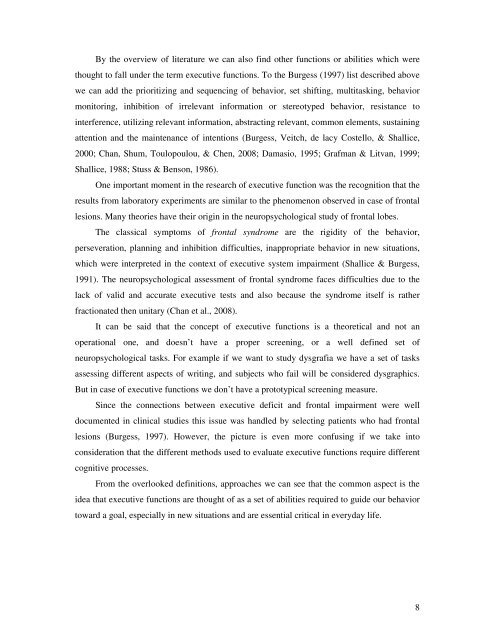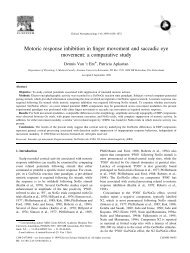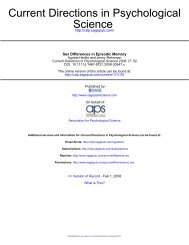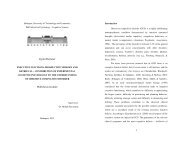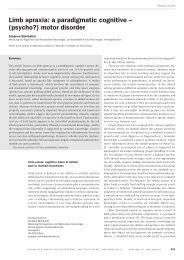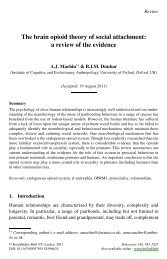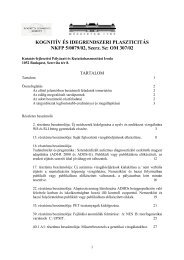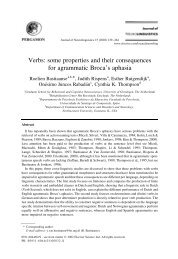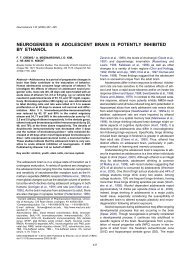Gyula Demeter
Gyula Demeter
Gyula Demeter
You also want an ePaper? Increase the reach of your titles
YUMPU automatically turns print PDFs into web optimized ePapers that Google loves.
By the overview of literature we can also find other functions or abilities which were<br />
thought to fall under the term executive functions. To the Burgess (1997) list described above<br />
we can add the prioritizing and sequencing of behavior, set shifting, multitasking, behavior<br />
monitoring, inhibition of irrelevant information or stereotyped behavior, resistance to<br />
interference, utilizing relevant information, abstracting relevant, common elements, sustaining<br />
attention and the maintenance of intentions (Burgess, Veitch, de lacy Costello, & Shallice,<br />
2000; Chan, Shum, Toulopoulou, & Chen, 2008; Damasio, 1995; Grafman & Litvan, 1999;<br />
Shallice, 1988; Stuss & Benson, 1986).<br />
One important moment in the research of executive function was the recognition that the<br />
results from laboratory experiments are similar to the phenomenon observed in case of frontal<br />
lesions. Many theories have their origin in the neuropsychological study of frontal lobes.<br />
The classical symptoms of frontal syndrome are the rigidity of the behavior,<br />
perseveration, planning and inhibition difficulties, inappropriate behavior in new situations,<br />
which were interpreted in the context of executive system impairment (Shallice & Burgess,<br />
1991). The neuropsychological assessment of frontal syndrome faces difficulties due to the<br />
lack of valid and accurate executive tests and also because the syndrome itself is rather<br />
fractionated then unitary (Chan et al., 2008).<br />
It can be said that the concept of executive functions is a theoretical and not an<br />
operational one, and doesn’t have a proper screening, or a well defined set of<br />
neuropsychological tasks. For example if we want to study dysgrafia we have a set of tasks<br />
assessing different aspects of writing, and subjects who fail will be considered dysgraphics.<br />
But in case of executive functions we don’t have a prototypical screening measure.<br />
Since the connections between executive deficit and frontal impairment were well<br />
documented in clinical studies this issue was handled by selecting patients who had frontal<br />
lesions (Burgess, 1997). However, the picture is even more confusing if we take into<br />
consideration that the different methods used to evaluate executive functions require different<br />
cognitive processes.<br />
From the overlooked definitions, approaches we can see that the common aspect is the<br />
idea that executive functions are thought of as a set of abilities required to guide our behavior<br />
toward a goal, especially in new situations and are essential critical in everyday life.<br />
8


